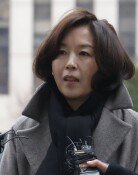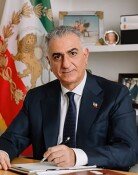UN Official Reports on North Korean Rights Situation
UN Official Reports on North Korean Rights Situation
Posted October. 29, 2005 03:14,
Vitit Muntarbhorn (52), special rapporteur on North Korea for the UN`s Commission on Human Rights, urged, Above all, the right to food and the right to life should be resolved soon in order to improve the North Korean human rights situation, yesterday in his special report to the UN General Assembly Third Committee (in charge of social, cultural, humanitarian issues).
The European Union is planning to submit a North Korean human rights resolution soon to the UN General Assembly based on the special rapporteurs report.
Muntarbhorn had an exclusive interview with Dong-A Ilbo in the conference room that day after the report, and said, In the process of writing a report on the North Korean human rights issue, I tried to be transparent and objective as a legal scholar, excluding political influence as much as possible.
He graduated from Oxford University and has a lawyers certificate in Britain. He is currently a professor of law at Chulalongkorn University in Thailand. He also worked as the UN special rapporteur on the sale of children, child prostitution and child pornography from 1991 to 1994.
Asked which problem he worries about the most in the current North Korean human rights situation, the special rapporteur answered, The right to food.
North Korea says that it doesnt need external assistance any more because this years crop is abundant. But the country has failed to resolve its food problem, he said. Reportedly, the country will stop international aid groups from residing in Pyongyang starting from next year. If external assistance is cut off, North Koreas food situation could worsen. I hope the North Korean government will show more flexibility.
The UN Commission on Human Rights created the post of special rapporteur on the North Korean human rights situation in April last year, and appointed Muntarbhorn as special rapporteur in July. However, he has not visited North Korea yet as the North Korean government has refused to allow him entry. Instead, he has collected data on the North Korean human rights situation by visiting Japan and China. He said, It is regretful that I could not visit North Korea, but there was no big problem in writing a human rights report. There were enough sources, including UN organizations and NGOs.
With respect to the North Korean governments claim that the human rights issue constitutes intervention in its internal affairs, he dismissed that as a classic argument that the government has always maintained, saying, Under international law, all countries should guarantee human rights.
The special rapporteur also pointed out that there has been increasing numbers of North Koreans who seek asylum through foreign missions or schools over the last few years, emphasizing, Neighboring countries should recognize them as refugees or at least not repatriate them to the North, since chances are high that they will be persecuted if sent back to their country.
He said, Information is power. We can change a society by processing collected facts into good information through analysis. I hope my voice on the North Korean human rights problem can contribute to transforming North Korea into a better society.
Jong sik Kong kong@donga.com





![유학생들은 어쩌다 ‘먹튀’, 불법체류자가 되었나[이미지의 포에버 육아]](https://dimg.donga.com/c/138/175/90/1/wps/NEWS/IMAGE/2026/01/18/133179004.1.jpg)

